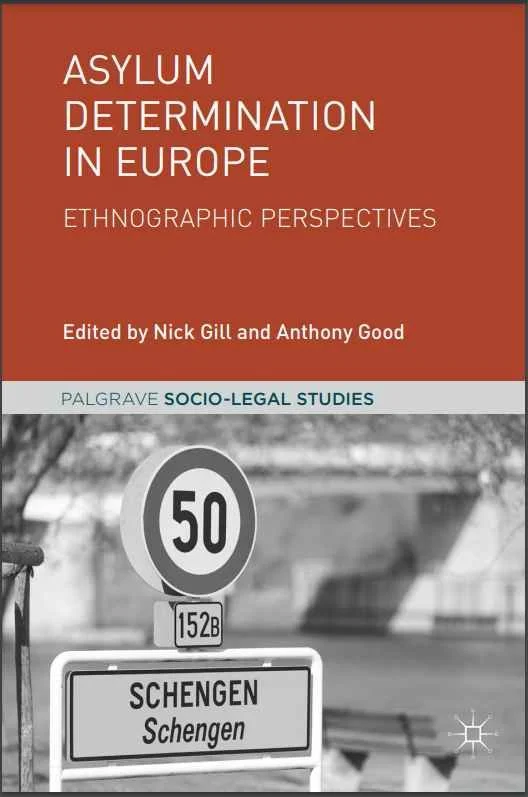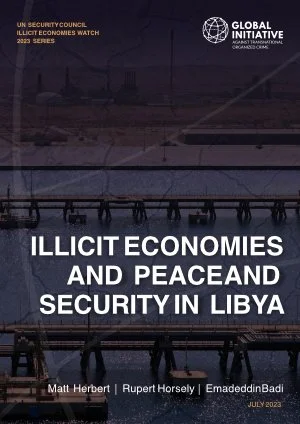By Matt Herbert | Rupert Horsely | Emadeddin Badi
Libya has been a key focus of the United Nations Security Council (UNSC) since the country’s 2011 revolution. A June 2023 UNSC meeting on Libya focused on the country’s political process, the need to hold elections and support work around the reunification of security and defence forces.1 That same month, the Council re-authorized its arms embargo on the country2 and in late 2023 it is set to renew the UN mission in Libya. The UNSC has sought to advance an effective political process, reunify the country’s divided institutions and address threats to peace and security, and human rights abuses. To effect this change, the UNSC authorized and draws on the United Nations Support Mission in Libya (UNSMIL), a sanctions committee and linked Panel of Experts, and the European Union Naval Force Mediterranean Operations Sophia and IRINI.3 Despite these efforts, Libya remains a highly fragile country. Although large-scale violence has ebbed since the Libyan Arab Armed Forces (LAAF)’s loss in the 2019–2020 war for Tripoli, the country remains divided. The Government of National Unity (GNU) – the internationally recognized government in Tripoli led by Abd al-Hamid Dabaiba – exerts direct influence over limited areas of the country’s territory, mainly in Tripolitania. Most territory, including Cyrenaica and the Fezzan, is held by the LAAF, led by Khalifa Haftar. Attempts to bridge these divides, hold elections and forge a broadly legitimate government have repeatedly failed, most recently in December 2021.4 Nonetheless, UNSC efforts in this regard continue, reflecting an international consensus that the way out of Libya’s protracted instability is likely to be found in the political track, through the establishment of a government capable of superseding the current divides and exercising sovereign control over the country.5 However, the distribution of power within Libya challenges efforts to stabilize the country through the political track alone. Belying the simple narrative of national bifurcation, the GNU and LAAF have limited and contingent control over their respective areas. Instead, armed groups rooted in municipal or tribal groupings dominate local power. Governance and security often hinge on deals and agreements continually being renegotiated between these groups and the GNU or the LAAF.
Libya’s thriving illicit economies, and their links to armed groups and political actors throughout the country, compound the challenges to the UNSC’s efforts to promote a stable peace and the rule of law.6 Profits from these markets provide a crucial funding source for armed groups, enabling and incentivizing pushback against state efforts to assert control, and drive conflicts between groups over control of key markets and routes.7 They also fuel petty and large-scale corruption, stymying efforts to rebuild rule of law and security-force effectiveness in the country.8 Efforts to prevent criminal penetration of the Libyan state have failed. Actors linked to illicit economies have increasingly become embedded within the security forces, while others seek opportunities for high-level positions and political influence. This raises the risk that criminal interests, predation and corruption will be fused into the state. Equally problematically, it risks poisoning citizen trust in and possible acceptance of future governance and security structures involving compromised actors. For these reasons, understanding how illicit economies function in Libya and their impacts, and how they are changing, is essential for the UNSC as it seeks to promote political solutions and stability in the country. This brief provides the UN and member states with a snapshot of how Libya’s illicit economies have developed over the last three years and the impact those shifts have had. In the interest of length, the brief does not detail all changes or offer a full description of the structural elements in all markets. Rather, it focuses on the most salient aspects for policymakers assessing the challenge of illicit markets. The brief begins by detailing the impact illicit economies have on armed groups and political dynamics. Next, it assesses the state of play of the main illicit markets in the country: fuel smuggling, drug trafficking, mercenaries, arms and ammunition smuggling, and migrant smuggling and trafficking. It ends with a brief set of recommendations.
Geneva, SWIT: Global Initiative Against Transnational Organized Crime , 2023. 35p.





























